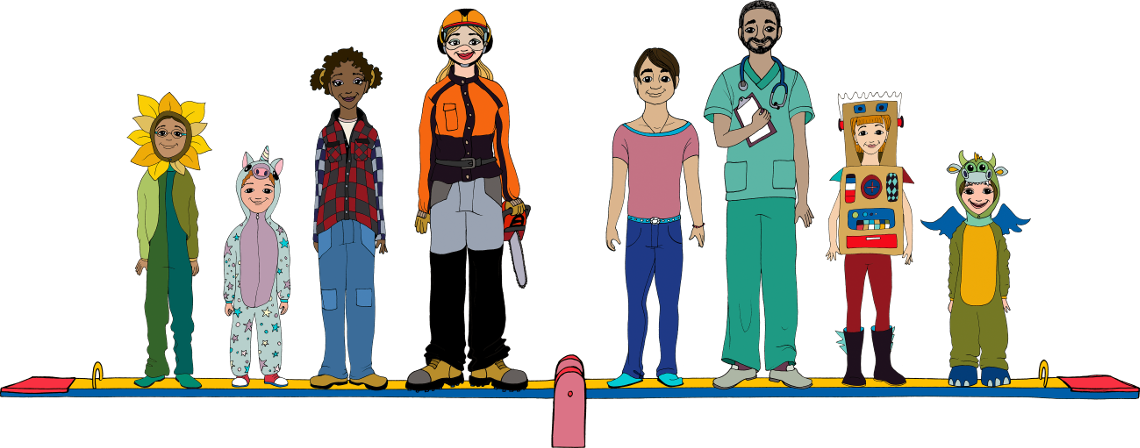Goals

Brief description of the issue
In the Gaspé and the Magdalen Islands, the proportion of women in traditionally female jobs and the proportion of men in traditionally male jobs are very high. Among the 15 main professions occupied by men of the region, nine had a proportion of men higher than 80%. On women’s side, the same pattern shows up: 10 professions out of 15 had a proportion of women higher than 80% (Statistics Canada, 2016). To make sure that children feel comfortable in choosing a profession no matter what their gender is, it is important that we show them diversified models that go against gender stereotypes.
Redraw the balance
If you’re having a thematic activity around trades and professions (or not!), invite children to draw characters doing some pre-decided professions. Ask children to give a name to their character. After that, invite real people from your community that already practise this profession, but who aren’t of the gender traditionally associated with this job. For example, invite a female mechanician and a male nurse! See this example realized by a teacher in England.
It isn’t necessary to highlight that the people you’re inviting are “exceptional” within their profession or that it isn’t “normal” to be a female mechanician, for example. The goal of the activity is to offer children diversified role models when they are building their own gender identity. Therefore, children won’t systematically see traditionally male jobs as being only for men and vice versa for traditionally female jobs.
To find women of the area working in traditionally masculine fields, have a look at the Métiers pour elles website (in French only), that has been put in place by the Table de concertation des groupes de femmes de la Gaspésie et des Îles-de-la-Madeleine.
Posters
The illustrator Élise Gravel created posters aiming at breaking down gender stereotypes, and that she offers for free to people working in early childhood and at the elementary level. One of her posters looks at scientific professions, which are less chosen by girls, and showcases a few famous women scientists.
References
GRAVEL, Élise (2018). “Some famous scientists”, Élise Gravel | author and illustrator, http://elisegravel.com/en/blog/some-famous-scientists/
STATISTICS CANADA (2016). Population census, special compilation.
TABLE DE CONCERTATION DES GROUPES DE FEMMES DE LA GASPÉSIE ET DES ÎLES-DE-LA-MADELEINE (2018). Métiers pour elles, accessible at: http://metierspourelles.qc.ca
